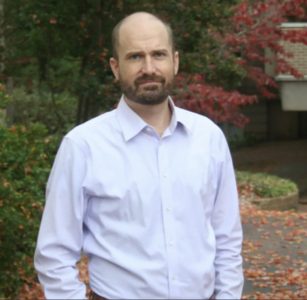Dr. Kaza works at the intersection of urbanization patterns, local energy policy, and equity. He takes an interdisciplinary approach to studying how institutional innovations help or hinder cities, how organizations achieve their energy and environmental goals, and how these innovations might have a differential impact on different groups. Lately, he has been wrangling large spatial and non-spatial datasets to better understand how urban systems and institutions co-evolve in different parts of the world.
His larger intellectual project is to strengthen the foundational justifications of planning. Understanding how, when, and why multiple agents endowed with distributed authority, capabilities, and limited foresight plan challenges the conventional wisdom that plans are blueprints of the future made by governments. In urban settings, these agents are governments, private firms, organizations, coalitions, and ephemeral groups. We can only understand the efficacy of planning in the networks of mutual commitments of these agents.
Other hallmarks of his research program are the use of large datasets and cheap computational power to explore salient questions associated with urban systems. For example, he has developed an urban growth pattern monitoring program for all of the conterminous United States using LandSat satellite imagery. Using high resolution employment and transportation datasets, he also examines the relationship between economic opportunity, travel accessibility, and environmental impacts. He is currently developing machine learning algorithms to identify and characterize irregular settlements in India using high-resolution satellite imagery. A recent collaboration with private sector partners and colleagues at other universities examines how to create water conservation programs using high-resolution (temporal) data from smart meters. These projects directly feed into a critical examination of the “smart city” concept.
Dr. Kaza’s interdisciplinary training in architecture, mathematics, and planning allows him to enjoy fruitful collaborations with researchers from different fields, including economics, computer science, civil engineering, geography, and political science. His research is supported by the National Science Foundation, the Department of Defense, the Environmental Protection Agency, the Institute for Market Transformation, World Bank, the Urban Institute ,and Omidiyar Network, among others. He joined UNC-Chapel Hill’s Department of City and Regional Planning in 2009 after doing post-doctoral training at the University of Maryland and earning a Ph.D. from the University of Illinois.
In addition to his work, he enjoys rock climbing, squash, skiing, and mountain biking. The Triangle area provides excellent opportunities to pursue most of these interests.
In the News
Carolina Tracker: A Resource for Recovery
RESPONSE TO THE PANDEMIC: SURVEILLANCE
Making “PUBLIC” Economic Data Accessible
Tackling coronavirus hotspots in city slums hindered by lack of data
Schedule an Appointment
To schedule an appointment with Dr. Kaza, please use his calendar.
Additional Links
LinkedIn
| Website
| Google Scholar
Affiliations: Carolina Transportation Program, Center for Community Capital, Center for Urban and Regional Studies, Institue for the Environment, Environment – Ecology & Energy Program (E3P)







